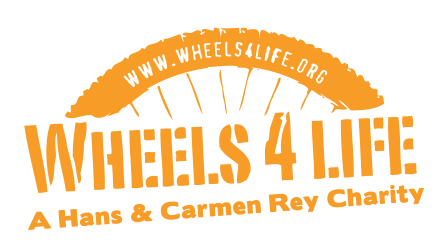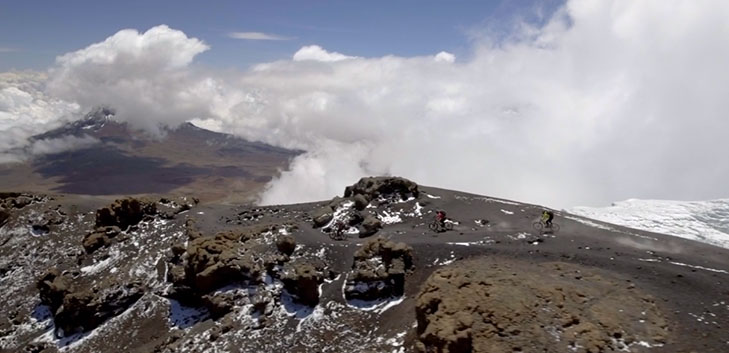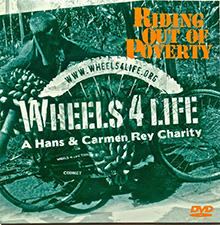From: Chief Edwin Ogar, Ekuri Initiative
To: Wheels4Life
Title: Report on distribution of bicycles Date: 15th August, 2007.
Background: Wheels4Life in partnership with the United Nations Equator Initiative contacted Ekuri Initiative, a recipient of the UNDP’s highest environmental prize — 2004 Equator Award, for assistance for the distribution of bicycles to those in need of bikes in Nigeria.
Chief Edwin Ogar, the Project Coordinator of the Ekuri Initiative accepted the invitation by responding to questions from Wheels4Life which subsequently led to approval by W4L for procurement and distribution to the Ekuri villagers in need of bikes. Thus the sum of $2000 (N256,000) was wired transfer to me – Chief Edwin Ogar to implement the activities.
Selection of beneficiaries: When the money was received, Chief Edwin Ogar performed a needs assessment and prioritization of needs using pair-wise ranking mechanism to find out the needs of community members of Old Ekuri, New Ekuri (primary communities) and Okokori, Edondon, Iyamitet (outreach Communities of the Ekuri Initiative).
In total, needs assessments were conducted among 183 participants as follows: Edondon (23), Okokori (17), Old Ekuri (39), New Ekuri (94) and Iyamitet (10).This assessment was conducted among teachers, students, health workers and farmers involving relevant social groups in these communities.
Basic needs that were recognized were generator, television, camera, phone and bicycle and these needs were subsequently ranked and 20 participants emerged as beneficiaries for identification of bicycle as their most felt need. The exercise was done transparently as every participant most felt need was announced to the villagers after the result of the ranking thus eliminating anything suspicious.
The assessment and prioritization of needs were done in an opened place where other villagers waited patiently to participant in the activity. The following participants emerged as beneficiaries for the bikes project:
Old Ekuri:
- Dennis Oyamo – Teacher
- Richard Egbe – Student
- Mark Ita – Farmer
- Vincent Egbe – Health worker
- David Okorn – Farmer
- Romanus Ogar – Social worker
New Ekuri:
- Livinus Ettah – Farmer
- Benard Mbeh – Social worker
- Moses Akamo – Teacher
- Abel Jerome – Student
- Victor Imo – Student
- Eucharia Ogar – Health worker
- Maurice Mbeh – Student
Okokori:
- Otey Egbe Ejukwa – Health worker
Edondon:
- Cletus Oyi – Farmer
- Joseph Enwa – Teacher
- Martin Ita – Social worker
Iyamitet:
- Peter Ayami – Teacher
- Cyril James – Student
- Arikpo Orim – Social worker
Procurement of Bikes: At the conclusion of the selection of beneficiaries, I contacted a dealer of bikes in Calabar for its procurement. However, I learnt from the dealer that procuring HERO bicycles in cartons in Aba (about 200 Km away from Calabar) and assembling them in Calabar will be relatively same price with RALEIGH, I opted to buy the former as aforementioned and were all assembled in Calabar before transporting them to Edondon. The HERO bicycles is stronger and durable than RALEIGH, hence the option for the former.
Presentation of bikes to beneficiaries: Prior to presentation of the bikes to beneficiaries on 7th August, 2007 in Edondon Community (which is central), I sent invitation letters to all beneficiaries who turned up as well as their respective family members and associates. The presentation of the bikes to the beneficiaries was replete of happiness and gratitude to W4L for the good gesture to reduce the difficult transportation facing them. Group photos, photographs of the bikes as well as individual beneficiaries with their bike were also taken.
Lessons learned/Recommendations:The lesson learned is that people are willing to accept support even if undesirable and irrelevant to them. However, using the pair-wise ranking method, you can easily recognized most felt need of an individual and when support is provided, it becomes sustainable. Such support has the potential of long-term survival and therefore pair-wise ranking is recommended for use in participatory rural appraisal to identity most felt need of individual or groups.
Also recommended is that more bikes be donated to support other community members in Nigeria in need of bikes to reduce the difficulties they face due to location problems, difficult access and prevailing poverty among rural people.
Financial Report: The sum of $2000 equivalent to 256,000 Nigeria Naira was received from W4L for procurement and distribution of bikes to the beneficiaries. The following constitute expenses in the implementation of these activities.
Transport fares to 5 communities for needs assessment: $95 (N12,160)
Purchase of 20 bikes @ N13,000: $2,031.25 (N260,000)
Assembling of bikes @N500 each: $78.12 (N10,000)
Transport of bikes to Edondon: $234.75 (N30,000)
Photographs: $31.25 (N4,000)
Report/Scanning of photos: $19.53 (N2,500)
Total: $2,489.90 (N318,660)














